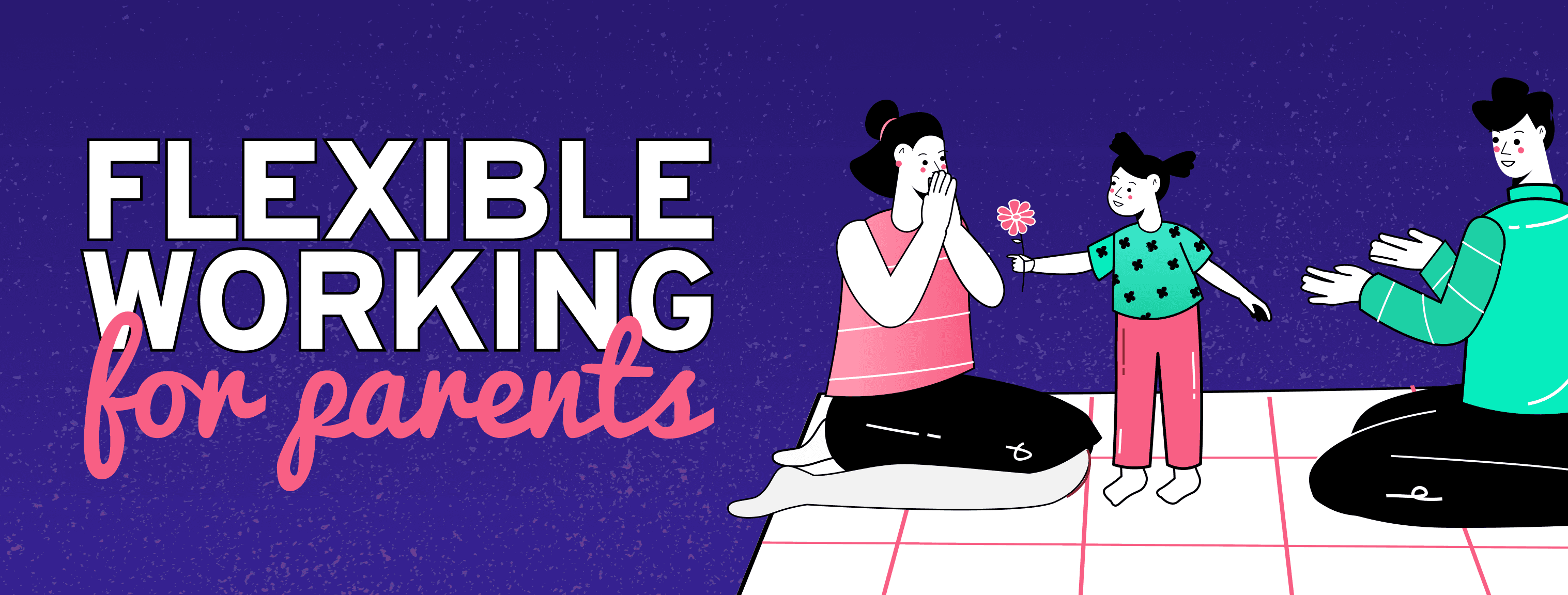Flexible Working For Parents
20th Oct 2022

Creating an inclusive environment for working parents to thrive is essential. Not just for the purpose of inclusivity, but to create a better society for our generation and generations to come.
Being a parent is far from easy, but that shouldn’t have to limit your career or progression opportunities. As a parent, you’re now Mum or Dad, but you still have your own identity - for many parents, having a career is a big part of that. Whilst on the other side of the spectrum, plenty of parents have no choice but to work to provide for their children.
Often companies forget that we are all human and don’t live to work; we have lives outside of the workplace, whether as a parent or not.
Being a parent doesn’t hinder performance
At such an important and exciting time, women are faced with the anxiety of being scared to announce their pregnancy to employers, which shouldn’t be the case. Research shows that this is due to the perception of mothers in the workplace. However, 84% of those in the Bright Horizons survey said working moms in top roles would make a company more successful.
Sarah Hesz, CCO at Bubble, says “In fact, I [...] am so much more efficient [with] my working hours now than I was pre-having kids. And you discover new ways of working when you have very hard deadlines of child minded pickups.” (12:48 “How to create a working environment where parents can thrive”).
Equality for parents in the workplace
‘The working parent’ comes in many forms, whether that be two working parents or a single working mother or father. With gender roles being shifted with more parents sharing caring responsibilities and chores compared to previous generations, equality between both genders is vital.
Over recent years, more employers are offering a benefit/perk called enhanced parental leave (not just exclusive to one gender). These companies really understand the need for empowering parents and giving them the time they need to be able to support their families and partners whilst bonding with their new child.
We’re also seeing the shift in leadership teams. 2021 saw the proportion of women in senior management roles grow by 31% globally - the highest number ever recorded. And 90% of companies worldwide have at least one woman in a senior management role, according to Catalyst.
Offering flexible working helps to combat equality issues in the workplace and should equally be available regardless of gender or whether you have children or not.
Flexible schedules can benefit everyone, businesses gain more productive employees and employees are able to better balance work and family life.
Balancing work and family life
Juggling parenting and working is tough, and even more so difficult if you’re a single parent or if you have a lack of support from family, friends and employers. You have to think about the school pick-ups/drop-offs, supporting them with homework, a bedtime routine, quality time and not to mention extra love, care, and attention when your child is sick - the list goes on.
Sarah Hawley, CEO at Growmotely, shares how she’s lucky enough to have been in a remote position when having her little one, adding ”I [couldn’t] imagine how to deal with all of these shifts and changes in a large corporate [setting] with incumbent structures and systems and policies.” (24:12 “How to create a working environment where parents can thrive”).
Build an open working culture
Many (but not all) employers are beginning to become more supportive of the fact everyone has commitments outside of work.
For parents, you’re likely to need flexibility around important events such as your child's school play, sports day or if your child is sick - these are some of your requirements.
It's important to be vocal about your needs and requirements, but companies have the responsibility to build an open culture which supports this. This all starts from the top down and therefore vital that there is more diversity across senior leadership and that leadership teams support this change.
Types of flexible working for parents
There are different types of flexible working options which might better fit the needs of a working parent. Working flexibility not only helps parents be able to manage their time better and spend more time caring for their children, but to also better care for themselves which is just as important.
Companies need to prioritise building an output-driven culture that focuses on results instead of how many hours you work or where you work. Giving employees the choice to work how they work best creates more fulfilled, happier and more productive employees.